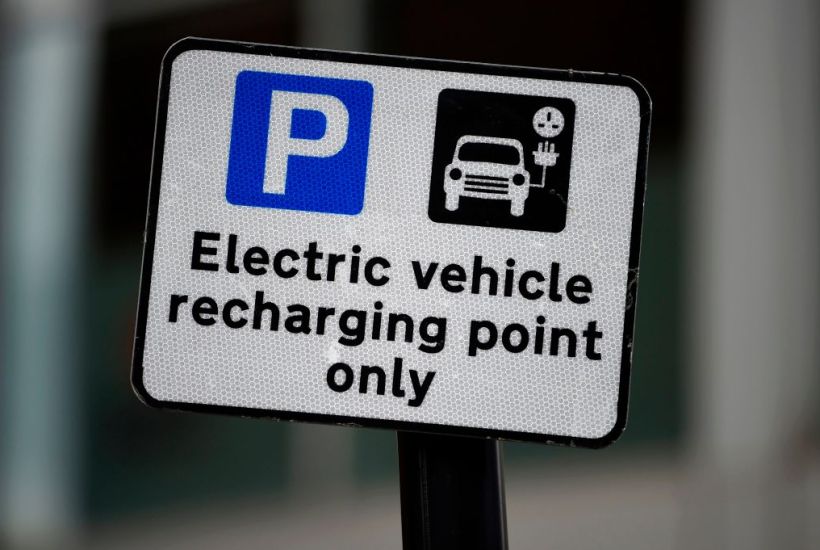Boris Johnson announced his new ten-point plan for Britain’s transition to a net-zero carbon emissions economy this week. It is expected that other countries will follow. The EU has a stated aim of achieving a net-zero economy by 2050, with a 60 per cent reduction in emissions from 1990 levels by 2030. This presents an opportunity to develop British industry to a position where it can capitalise on the opportunities presented.
The word ‘develop’ is doing a lot of work in that sentence, of course. What might it involve? There is certainly an emphasis in the plans announced on more R&D, including innovations around hydrogen and nuclear power, low emission shipping and aviation, and carbon-capture and storage (CCS). But to create a self-sustaining green industrial ecosystem in a decade is likely to need more than just R&D funding. And this is where we might run into problems regarding state aid.
According to the definition on the government’s website, state aid (as it stands) is
‘Any advantage granted by public authorities through state resources on a selective basis to any organisations that could potentially distort competition and trade in the European Union (EU). The definition of state aid is very broad because ‘an advantage’ can take many forms. It is anything which an undertaking (an organisation engaged in economic activity) could not get on the open market.’
Among the examples given, areas where state aid may attract the attention of regulators include grants, loans, tax breaks (including enhanced capital allowances), and the use or sale of a state asset for free or at less than market price.
It seems likely that if the government wishes to attract inward investment and company creation at the required level, it will have to use some or all of these options.
It certainly appeared to be the view of Dominic Cummings (when he was still in a position to influence such matters) that a government should be free to subsidise whichever industries it wanted to, and that was the point of national sovereignty. Similarly, his attraction to the DARPA-style government research as a way to pump-prime new industries. The belief was that there is normally a narrow window of time in which a country can set itself up as a leader, and if it misses that window, it is unlikely to catch up in a meaningful way.
One relevant example is the fact that there are no major UK-based wind turbine manufacturers. Despite the technology having been first developed in the UK, the majority of manufacturers are now Danish, German and American. So when the government states its ambition to have 40GW of offshore wind installed by 2030, it is clear that a large amount of money will be flowing out of the country to pay for it.
Some components are built here, for example Siemens’ manufacturing facility in Kingston upon Hull, but the domestic industry has suffered one indignity after another. Most recently, the Scottish-based BiFab had support from the Scottish government cut off because their legal advice was that the £30m guarantee that had been agreed would contravene EU state-aid rules. Facing liquidation, BiFab was subsequently sold to a Canadian company for just £1.
It is fair to point out that, on the whole, governments are lousy pickers of winners, and that state subsidy normally leads to misallocation of resources and underwhelming outcomes. Usually, I would agree with the free-marketeers. The government getting out of the way and reducing the burden of regulation is a preferable solution. This should certainly be the approach of the government when it comes to thriving diverse sectors like biotech where the UK is already a leader.
But given that the UK is playing catch-up in this sector with the rest of the world, it might be necessary to use industrial strategy of this sort to support its development. And this is perhaps what the Government is thinking of when it insists on freedom from the EU’s rules on state aid.
The EU has allowed certain schemes to proceed, for example a district heating project in Romania, and energy subsidies for renewables in the UK, but it is instructive that the Commission feels that these projects must be ruled upon by their court to determine whether they break state aid rules. Is the ambition to have a hydrogen-powered town so different to a district heating scheme? If the government funds a vast expansion in chargepoints compatible with a new domestic manufacturer’s battery technology, could that be regarded as an unfair advantage? It is certainly possible that a UK government would find its attempts to engineer a competitive advantage in these technologies stymied by EU judgements.
It’s long been the claim that Brexit provides an opportunity to do things differently. The Government’s plan might be a demonstration of just that.
Got something to add? Join the discussion and comment below.
Get 10 issues for just $10
Subscribe to The Spectator Australia today for the next 10 magazine issues, plus full online access, for just $10.




















Comments
Don't miss out
Join the conversation with other Spectator Australia readers. Subscribe to leave a comment.
SUBSCRIBEAlready a subscriber? Log in